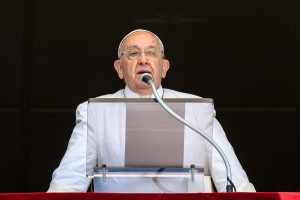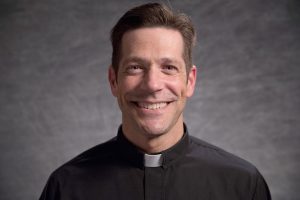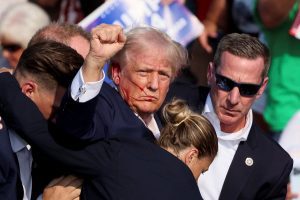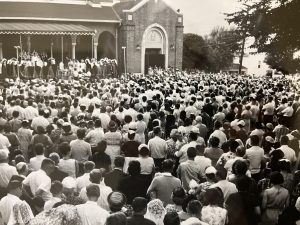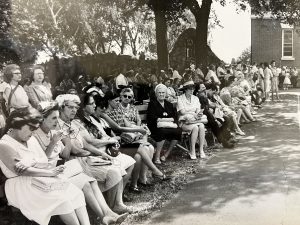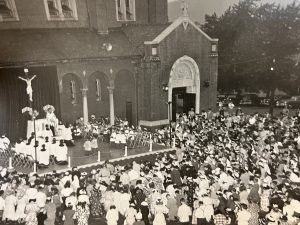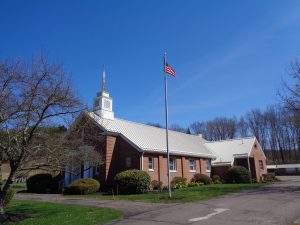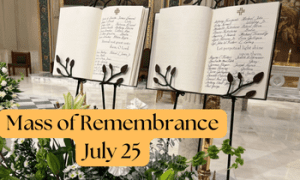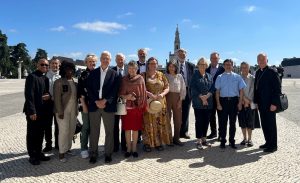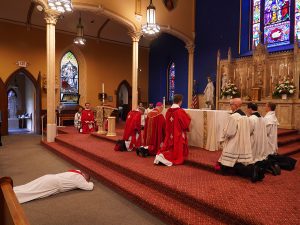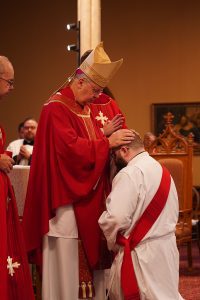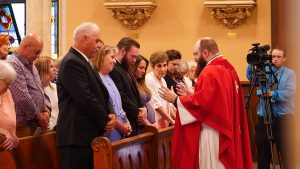
WEST PITTSTON – As the calendar turned to July, several parishes that have been engaged in the Vision 2030 Pastoral Planning Process officially came together to form new communities of faith.
The changes all come after months, and in some cases, years of hard work, discussion, and consultation with parishioners.
CORPUS CHRISTI PARISH
In Luzerne County, Saint Barbara Parish, Exeter, consolidated with Corpus Christi Parish, West Pittston, on July 1, 2024. The new parish has retained the name Corpus Christi Parish.
All three worship sites of the newly consolidated parish, Immaculate Conception Church, West Pittston; Saint Anthony of Padua Church, Exeter; and Church of the Holy Redeemer, Falls, remain open.
Saint Barbara Parish and Corpus Christi Parish first came together in a linkage in May 2022 under the leadership of Monsignor John Sempa.
From the very first day working together, Msgr. Sempa said parishioners recognized the important fact that they are all neighbors who share the same faith. He says the people quickly worked together to combine ministries and make each other feel welcome and comfortable.
Those efforts paved the way for the two parishes to consolidate on July 1, 2024.
“First of all, people are good. That is the key thing. I think our Parish Pastoral Council, led by Attorney Joe Burke, did a wonderful job working with the Finance committees of both parishes. They were assisted by the three amazing ladies who work in our office, our two deacons and Fr. Michael, our Assistant Pastor,” Msgr. Sempa said. “Even before we became one, everything was working together very well. Even before the official declaration, we were one before then, everybody thought it was a no-brainer.”
The newly formed Corpus Christi Parish has wasted no time in working together on its ‘back-to-school calendar of giving,’ which is collecting school supplies, hygiene products and snacks for kids in Pre-K through high school during the month of July.
“A whole lot of wonderful things are going on. We look forward to expanding things and doing the best we can and making sure everyone knows they are needed and welcome,” Msgr. Sempa added.
CHRIST THE KING PARISH
In Lackawanna County, Sacred Hearts of Jesus and Mary Parish, Jermyn, consolidated with Christ the King Parish, Archbald, on July 1, 2024. The new parish has retained the name Christ the King Parish.
All three worship sites of the newly consolidated parish, Saint Thomas Aquinas Church, Archbald; Sacred Heart of Mary Church, Jermyn; and Saint Mary of Czestochowa Church, Eynon, remain open.
Sacred Hearts of Jesus and Mary Parish and Christ the King Parish first came together in a linkage in October 2023 under the leadership of Father Ryan Glenn.
Father Ryan said many parishioners are embracing the new identity of the consolidated parish and many recognized the need for change because of a diminishing number of priests.
“I am a huge proponent of transparency and communication. Between two town hall meetings, bulletin articles, preaching about it from time to time, it all came together for a smooth transition,” Father Ryan explained. “I think providing information to our people on the priority drivers of demographics and finances, along with the fact that we had a transition team and formed a new Parish Pastoral Council with membership from all three of our sites, it all came together naturally.”
On the weekend of July 26-28, Christ the King Parish will hold its annual parish picnic. Father Ryan says parishioners from all three sites are stepping up and volunteering.
“We share one mission. We’re excited because we just composed a new mission statement and it’s really appropriate for all of us living in the valley,” Father Ryan stated. “It’s to proclaim the Gospel, to worship the Lord and to serve the needy, to serve those who go without and it is best when we do it together, it is best when we pool our resources together and we can better accomplish the mission that the Lord has given us!”
OUR LADY OF THE ROSARY PARISH
In the city of Carbondale, the two Catholic parishes of Our Lady of Mount Carmel and Saint Rose of Lima officially came together to form a new parish on July 1. The newly consolidated parish is now named Our Lady of the Rosary Parish.
Both Our Lady of Mount Carmel Church and Saint Rose of Lima Church remain open for worship.
Our Lady of Mount Carmel Parish and Saint Rose of Lima Parish initially came together in a linkage under the leadership of one pastor in 2009. The process of consolidation began in fall 2021 with discussions revolving around priority drivers that included declining Mass attendance, a shrinking number of priests in the diocese, finances, and infrastructure concerns.
“The Vision 2030 Process really did help us lay out the priority drivers and examine things. We share so many similarities. We’re able to go to school together, we’re able to shop together, we’re able to have parties together – why can’t we pray together as well? I think it has been an opportunity for us to embrace the gift of the Eucharist as the source and summit of our lives and to share in the great call of Jesus to be His disciple,” Father Seth Wasnock, pastor, Our Lady of the Rosary Parish, said.
Because of plenty of data, and help from the Holy Spirit, Father Wasnock said many parishioners began to see change was needed.
“Our current situation in the city and throughout the diocese has changed over the years. It’s not the same – not that it is good or bad – it’s just different. How do we respond to that different situation and how do we make it work for the people today,” he explained.
On the first weekend of the new Our Lady of the Rosary Parish, Father Wasnock blessed an image of Our Lady of the Rosary at both churches.
“We asked Our Lady to watch over us as the perfect disciple moving forward as our new chapter of faith unfolds here in Carbondale,” Father Wasnock added. “The thousand-mile journey begins with one step, and we are making that step together with Christ by our side to help us and strengthen us.”
